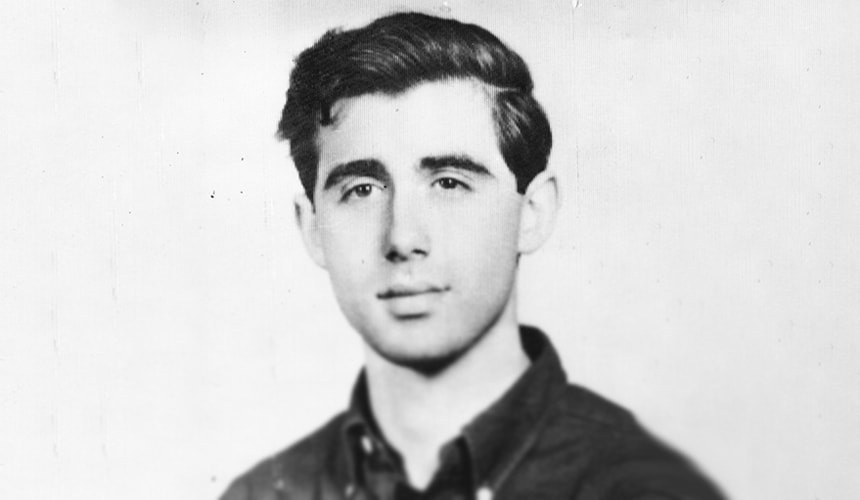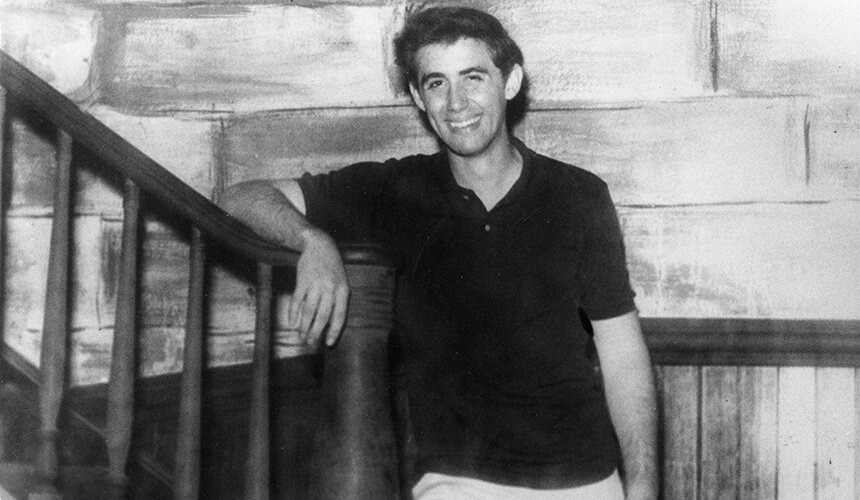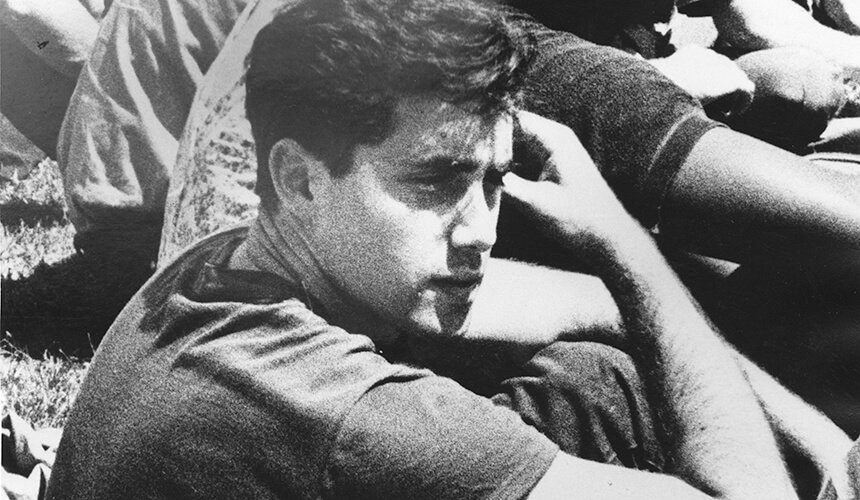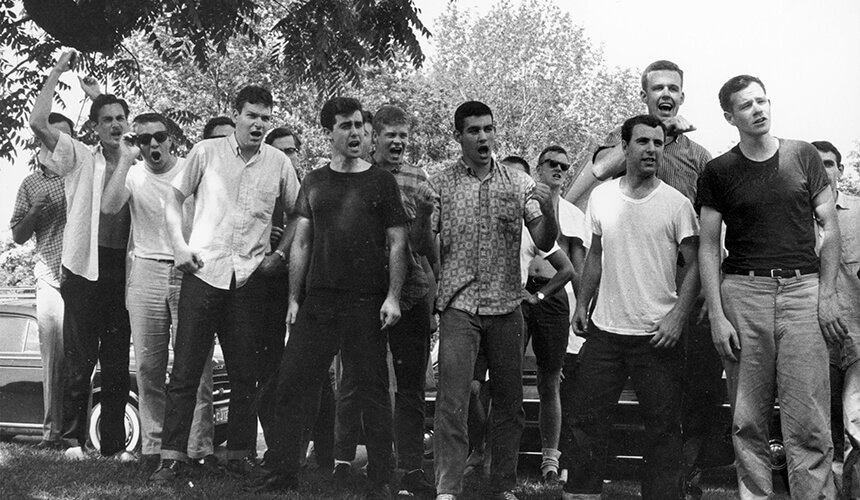Andrew Goodman
Legacy of the Freedom Summer
Again you show yourselves, you wavering Forms,
Revealed, as you once were, to clouded vision.
Shall I attempt to hold you fast once more?
Heart’s willing still to suffer that illusion?
You crowd do near! Well then, you shall endure.
And rouse me, from your mist and cloud’s confusion.
My spirit feels so young again: it’s shaken
By magic breezes that your breathings waken.
— From Goethe’s Faust, one of the plays in which Andrew Goodman performed at Queens College
On June 21, 1964, Andrew Goodman (attended 1961) arrived in Meridian, Mississippi, and sent a postcard to his parents. He was one of more than 1,000 young volunteers who had traveled from across the country to Mississippi that month to participate in the Freedom Summer project. He intended to help register African-American voters in the community for the next 10 weeks.
By then, Goodman was a student at Queens College in his native New York City, but he began his university education at the UW. Robert Kapsis BS1965 met and befriended Goodman while both were freshmen, and they shared a deep interest in music, visiting the New York Philharmonic together and attending folk shows in Greenwich Village. Once, they stood for hours to watch a Wagner opera. Some accounts say Goodman was forced to withdraw from the UW after contracting pneumonia, but Kapsis said that Goodman transferred to Queens simply because he missed New York.
View a timeline of Andrew Goodman’s life

David Goodman, Andrew’s brother. (Image courtesy of the Andrew Goodman Foundation.)
A young man with many passions and interests, Goodman was initially drawn toward a career in acting. But his attention shifted to social issues as the civil rights movement intensified, and he joined the Freedom Summer project hoping the experience would broaden his perspective on the country’s most pressing problems.
After sending his Meridian postcard, Goodman went with fellow volunteers James Chaney and Michael Schwerner to investigate a church bombing in nearby Philadelphia, Mississippi. Arrested along the way for speeding, the three were taken to jail and held until nightfall. The same police officer who released them followed the trio toward the county line and arrested them again. This time, he took the young men to a deserted area where members of the Ku Klux Klan killed all three.
From The Park
A people must have dignity and identity.
Source: Sociology paper, 1964
Public outrage over the violence in Mississippi that summer contributed to the passage of the Voting Rights Act of 1965, and Goodman’s family worked to establish a legacy for Andrew that would live well beyond his death. Founded by his mother, Carolyn, and later run by his brother, David, the Andrew Goodman Foundation supports young activists working on a wide range of social-justice issues.
Watch: The Andrew Goodman Foundation
“Governments often don’t initiate change,” said David Goodman. “People have to initiate it. They have to take a social action. Otherwise, people will live with the status quo forever if someone doesn’t change it.”
In 2014, Goodman, Chaney, and Schwerner received a posthumous Presidential Medal of Freedom from President Barack Obama. To mark the occasion, Queens College rang the bells on the campus clock tower that had been renamed in the trio’s honor. At the other end of campus is the arts complex where Goodman spent much of his time — and where since 1973, Kapsis has been a professor of sociology and film studies.
Note: In the Progress panel on Alumni Way exhibit in the park, Goodman is listed as a Freedom Rider. That term refers to civil rights workers who rode busses in the South in the cause of desegregation, beginning in 1961, while Goodman worked to register voters during the Freedom Summer of 1964.
 87° F
87° F


